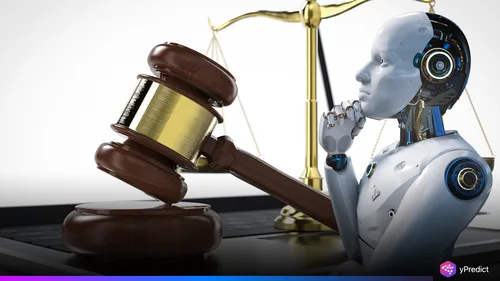
The legal industry has always existed in an world of accuracy, precision and countless hours of detailed research. Lawyers spend months prowling through regulations, statutes, precedents, and case law to formulate a persuasive argument. Clients typically pay a lot because they expect expertise, and require time in pursuit of an answer. However, technology is quickly altering this state of affairs.
An AI-focused legal research tool is now electrifying the legal community. Lawyers are astonished how quickly a tool can analyze a question and respond with an accurate, humanized answer including cited authorities. The ability to respond to what took hours (or days), and now mere seconds shifts the paradigm for lawyers as to how they will conduct legal service in the future.
As legal technology advances, the boundaries between traditional research and artificial intelligence continue to blur. The ability of an AI to provide trustworthy answers backed by verifiable citations is a game-changer. This tool does not just assist lawyers, it reshapes how law firms will operate in the coming years.
Why Lawyers Are Alarmed by This Breakthrough
Lawyers are trained to appreciate depth, patience, critical reading, and reasoning from precedent. The idea of an AI tool accomplishing in seconds what Law Schools would take years of training and study to complete at first can be exciting as well as disconcerting. Many fear that young associates whose job is to constantly conduct research for partners and senior associates will quickly become obsolete.
On the other hand, firms with pressures to reduce costs see opportunity. In a world with AI assisting in law, partners can refocus attention and resources from never-ending research into the strategy, negotiation, and courtroom abilities they should be focused and engaged with. The simultaneous fear and hope response demonstrate the outcome and influence of this disruptive innovation.
How the AI Legal Research Tool Works
Unlike generic AI models, this AI legal research tool is trained on large legal databases. When a lawyer asks a question, it scans through statutes, judgments, and commentary to produce an answer. Importantly, it provides citations so professionals can verify the source.
This feature matters because credibility is everything in the legal system. A lawyer cannot simply present an AI-generated answer without proof. The fact that the tool delivers not just text but cited references ensures it adds value rather than risk. For firms, this means faster, more reliable insights that hold up under scrutiny.
Benefits for Law Firms and Clients
The legal industry often moves slowly with technology, but this shift brings undeniable benefits. Lawyers save hours as research that once took a week now finishes in minutes. Reduced research costs make legal services more affordable for clients. Even small firms access the same depth of resources as large firms. Cited references improve accuracy and build greater confidence in results. Clients enjoy faster outcomes and lower bills, while lawyers focus more on strategy and complex elements machines cannot handle.
Challenges and Ethical Questions Ahead
Even with advantages, there are challenges. Lawyers, for example, wonder if reliance on an A.I. significantly affects critical thinking. What if younger associates don’t develop necessary skills if they skip the learning curve of research performed manually? There are also biases in training data.
Eventually, courts may have to consider how they incorporate or treat AI-generated research in filing. Citations increase confidence, but human judgment is the best guarantee. How smoothly this revolution happens will depend on how A.I. fits into the professional ethics of the law.
The Future of Legal Practice with AI
The emergence of this AI legal research tool is merely the start. Eventually, it could encompass drafting contracts, reviewing compliance issues, and maybe even predicting outcomes based upon precedent. Firms that get in front of things early will likely have more competitive advantages than firms that resist the changes.
Legal technology is not something in the near future anymore. It is becoming a day-to-day necessity. The legal profession must adapt and harness technology and innovation as AI innovations continue to develop into commonplace technologies, while simultaneously and at relevant speed meet ethical and professionalism standards. The tools that lawyers are shocked by today will more than likely end up being the food and packaging of tomorrow’s practice.
Final Thoughts
Legal practice is on the cusp of a new age where intelligence is assessed not only by hours performing research. The AI legal research tool is proof that speed, accuracy, and reliability can coexist. There may still be challenges to overcome, but the opportunities are too great to ignore.
Lawyers and clients will benefit from a future in which technology facilitates justice, rather than inhibits it. What we once thought impossible is happening now, and the legal profession must determine how to react.






